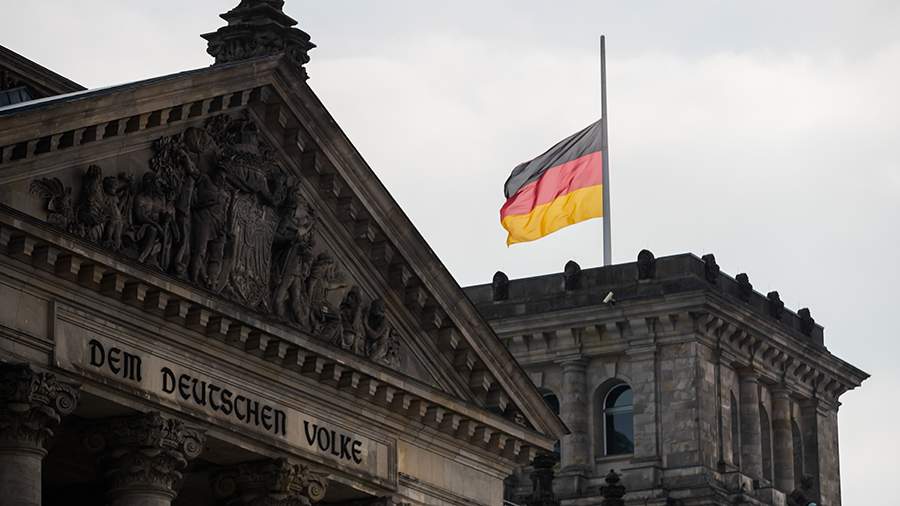
German industry was poisoned by Scholz's energy policy
By Rhod Mackenzie
The trust of German businesses in Chancellor Scholz and his government is diminishing rapidly. Siegfried Russwurm, the of the Federal Association of German Industry (BDI), has criticized Scholz's energy policy as 'absolutely toxic'.
In an interview with the Financial Times (FT), he stated that he had never encountered such a dogmatic climate agenda as in Germany. The government's decision to phase out nuclear energy and coal completely and transition to renewable energy sources puts companies in the continent's leading economy at a disadvantage compared to their counterparts in other developed countries.
Siegfried Russwurm explains his negative assessment of the Chancellor and his ministers, stating that it is impossible to predict energy supplies and electricity prices seven years from now. This uncertainty is detrimental to companies that need to make investment decisions.
The German economy has underperformed recently. It is worth noting that, according to the IMF, Germany had the weakest economic performance among major economies last year. In the recent past, Germany has suffered significant losses due to high discount rates, low demand for export goods, and high electricity prices.
In 2023, Germany's GDP fell by 0.3%, and exports dropped by 4.6% in December, which was significantly more than economists had predicted. The Organization for Economic Co-operation and Development (OECD) predicts that the German economy will only grow by 1.1% in 2024, which is significantly lower than the average growth rate of 3% for OECD members. Additionally, Germany is currently experiencing railway strikes and farmer protests,which further exacerbate the challenging economic and political situation in the country. The ruling coalition, comprising of the Social Democrats, Greens, and Free Democrats, is currently divided by ongoing disagreements on how to stimulate economic growth.
Clemens Fuest, head of the leading think tank Ifo, suggests that Germany is facing political instability and uncertainty similar to the UK's situation before Brexit.
Fuest believes that the November ban by the German Constitutional Court on the transfer of 60 billion euros to an off-budget climate fund is one of the reasons for the current situation, which has caused a budget crisis. The ban compelled Olaf Scholz and his ministers to implement significant spending cuts in the 2024 budget, as the judges' decision prohibited the government from utilising any extra-budgetary funds.
According to FT, there are additional reasons for this, including the absence of an economic strategy by the Scholz government. According to FT, there are additional reasons for this, including the absence of an economic strategy by the Scholz government. Fuest shares this view.
According to Clemens Fuest, there is a significant disconnect between economics and finance, which poses a threat to the economy in both the short and long term.
Businesses have expressed dissatisfaction with the federal government's climate agenda, arguing that the goals are too ambitious. For instance, Berlin aims to achieve carbon neutrality for the German economy by 2045 and obtain 80% of its electricity from wind and solar energy by 2030. This target is twice as high as the 2021 goal of 41%.
Siegfried Russwurm highlights that the final stage of this transition will be particularly costly. He stated that businesses are in favour of the transition to green energy, but the government has not provided guidance on how to handle situations where renewable sources are not available.
Officials dismiss criticism and refer to the program adopted on February 5 to build gas power plants that can be converted to hydrogen. However, gas power plants will not provide a short-term solution. Siegfried Russwurm, along with other business leaders, notes that in neighboring France, companies pay half as much for electricity as in Germany.
Energy policy is not the only area in which the Scholz government has failed. Entrepreneurs often express dissatisfaction with increasing taxes, burdensome permitting procedures, and conservative officials who are slow to adopt digitalization.
The federal government receives complaints and criticism not only from Russwurm. In January, Rainer Dulger, the head of the German Business Association (BDA), stated that the business community no longer trusts the government. According to Dulger, Scholz and his ministers are only pretending to listen to business concerns and are not taking any action to improve the economy.
Dulger summed up the situation as, 'No improvement, no predictability, no trust.'
Russwurm emphasizes that as a result of the aforementioned factors, an increasing number of companies are investing their money in foreign economies rather than the German economy. For instance, the United States implemented the Inflation Reduction Act (IRA), a protectionist law that provides substantial subsidies to companies investing in green energy and clean technology. Examples include Volkswagen, which in 2023 decided to build a battery production plant in the USA instead of Germany, and BASF, which decided to build a 10 billion petrochemical plant in China instead of its homeland.
According to Siegfried Russwurm, companies are finding it increasingly difficult to make long-term plans and doubt the wisdom of investing in Germany under such conditions. As a result, they are moving abroad where conditions are better.
